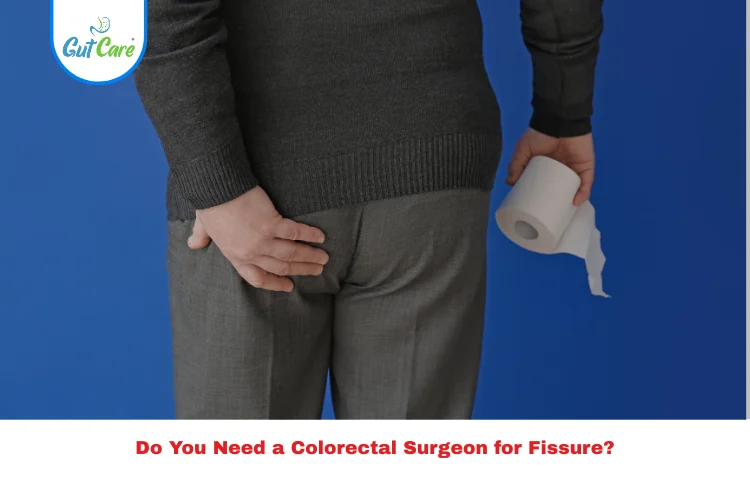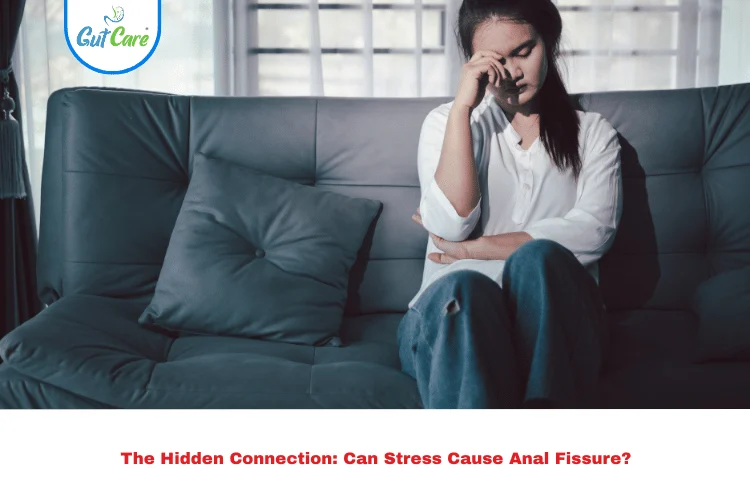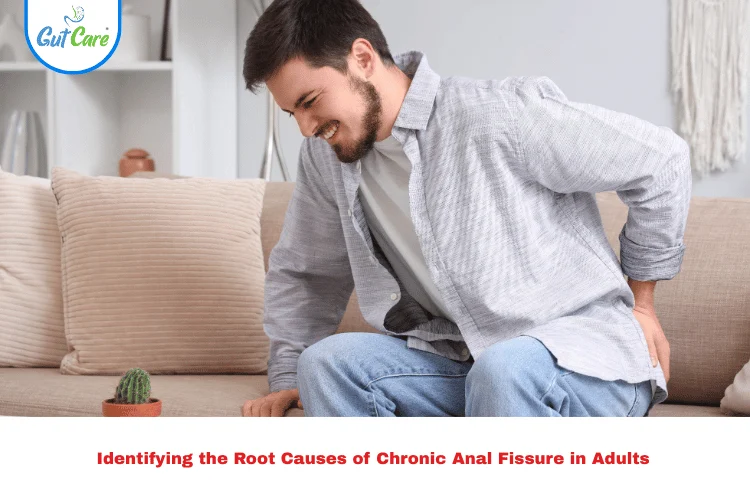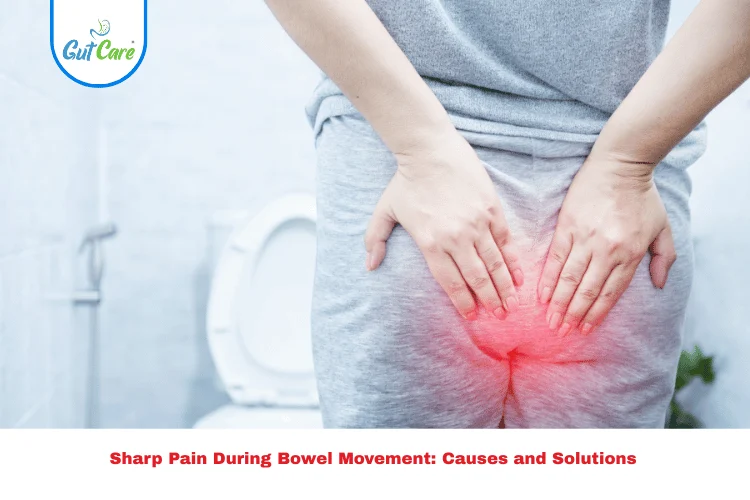Are you suffering from persistent pain or bleeding while passing stools? It might be time to consult a colorectal surgeon. At GutCare Clinics, our expert team specializes in diagnosing and treating conditions like anal fissures, offering the best care possible. If you’re searching for a trusted colorectal surgeon in Bangalore, Dr. Yuvaraj Singh Gehlot is renowned for his compassionate care and cutting-edge techniques in colorectal surgery.
Understanding the Role of a Colorectal Surgeon
What Does a Colorectal Surgeon Do?
Before diving into when to consult one, let’s understand the colorectal surgeon meaning. A colorectal surgeon is a medical specialist who diagnoses and treats diseases of the colon, rectum, and anus. This includes conditions like hemorrhoids, anal fissures, colorectal cancer, and inflammatory bowel disease.
They are highly trained professionals skilled in both medical and surgical treatments, ensuring that patients receive comprehensive care tailored to their unique needs.
What is an Anal Fissure?
An anal fissure is a small tear in the lining of the anus that can cause severe pain and bleeding during or after bowel movements. Although it might sound minor, a fissure can significantly affect your quality of life if left untreated.
Common Symptoms of Anal Fissures:
- Sharp pain during bowel movements
- Bright red blood on toilet paper
- Itching or irritation around the anus
- A visible crack or tear in the anal skin
- Discomfort that lasts hours after bowel movements
When Should You See a Colorectal Surgeon for Fissure?
While some fissures heal with basic home remedies, others become chronic and require medical intervention. Here’s when it’s best to consult a fissure specialist or a colorectal surgeon:
1. Persistent Pain or Bleeding
If you’ve been experiencing symptoms for more than two weeks despite using over-the-counter creams or stool softeners, it’s time to see a professional.
2. Recurrent Fissures
Recurrent anal fissures can be a sign of an underlying problem like muscle spasm or reduced blood flow to the area. A colorectal surgeon can help identify the root cause and offer long-term solutions.
3. Chronic Fissures
Chronic fissures may develop a sentinel pile (skin tag), internal sphincter muscle hypertrophy, or even progress to an infection. In such cases, medical management alone might not be enough.
4. Severe Pain During Bowel Movements
If your pain is so intense that it affects your daily life or causes anxiety around bowel movements, it’s essential to consult a fissure doctor.
Treatment Options Offered by a Colorectal Surgeon
A skilled colorectal surgeon can provide a range of treatments depending on the severity of your fissure:
Non-Surgical Treatments
- Topical Medications: Nitroglycerin or calcium channel blockers to relax the anal sphincter.
- Botox Injections: Helps reduce muscle spasm and promotes healing.
- Dietary Changes: High-fiber diets and hydration to ease bowel movements.
Surgical Treatments
- Lateral Internal Sphincterotomy: The gold standard for chronic fissures. This procedure involves making a small cut in the anal sphincter to reduce pressure and allow healing.
- Fissurectomy: Removal of the fissure and surrounding scar tissue to promote healing.
Consulting a colorectal surgeon ensures you get the most appropriate and least invasive treatment available.
Why Choose Dr. Yuvaraj Singh Gehlot – Best Colorectal Surgeon in Bangalore
When it comes to finding the best colorectal surgeon in Bangalore, Dr. Yuvaraj Singh Gehlot at GutCare Clinics stands out. With years of experience in colorectal surgery, Dr. Gehlot offers expert diagnosis and personalized treatment for conditions like anal fissures.
What Makes Him the Best:
- Fellowship-trained in advanced colorectal techniques
- Use of minimally invasive and laser surgery
- High patient satisfaction and recovery rates
- Compassionate, patient-first approach
Whether you’re dealing with a recurring fissure or a chronic one, Dr. Gehlot provides tailored care that ensures fast recovery and minimal discomfort.
When Home Remedies Aren’t Enough
Mild anal fissures can sometimes heal on their own with basic self-care. However, it’s crucial to know when to move beyond home treatment and consult a colorectal surgeon — especially if your symptoms persist or worsen.
Here are some common remedies people try initially:
- Sitz Baths: Sitting in warm water for 15–20 minutes can help relax the anal muscles and ease pain temporarily.
- High-Fiber Diet: Adding fiber from fruits, vegetables, and whole grains may help soften stools and reduce strain.
- Staying Hydrated: Drinking enough water can help prevent constipation, which often leads to fissures.
- Over-the-Counter Ointments: Creams containing lidocaine or hydrocortisone may provide short-term relief but don’t address the root cause.
While these strategies may offer temporary relief, they are not long-term solutions for chronic or severe fissures.
Signs You Should Stop Home Treatment and See a Colorectal Surgeon
If any of the following apply, it’s time to seek help from a fissure specialist or colorectal surgeon:
- Pain or bleeding continues beyond two weeks
- Fissures recur frequently
- Symptoms worsen despite self-care
- You notice a visible lump, skin tag, or swelling
- Bowel movements are consistently painful or irregular
At this point, delaying care could lead to more serious complications, such as infections or the need for more invasive surgery. A colorectal surgeon in Bangalore like Dr. Yuvaraj Singh Gehlot at GutCare Clinics can evaluate your condition and recommend the most effective course of action — whether it’s advanced medication, Botox treatment, or minimally invasive colorectal surgery.
Importance of Timely Medical Intervention
Ignoring a fissure or relying solely on home remedies can lead to complications such as infections, fistulas, or even incontinence. Timely intervention from a fissure specialist like a colorectal surgeon ensures faster healing and prevents further complications.
At GutCare Clinics, we emphasize early diagnosis and personalized care to help you return to normal life as quickly as possible.
Final Thoughts: Don’t Suffer in Silence
Anal fissures are more common than most people think, but the pain and discomfort they cause can be severe and debilitating. If you’re struggling with symptoms that don’t go away, it’s time to consult a colorectal surgeon.
Whether you’re seeking a colorectal surgeon in Bangalore or looking for the best fissure doctor, Dr. Yuvaraj Singh Gehlot at GutCare Clinics provides expert, compassionate care to help you heal.
Don’t wait for the pain to get worse — seek help from a trusted fissure specialist today.
FAQs
1. When do I need to see a colorectal surgeon for a fissure?
You should see a colorectal surgeon when your anal fissure does not heal within two weeks, is causing extreme pain, or is recurrent! A fissure specialist such as Dr. Yuvaraj Singh Gehlot in Bangalore will evaluate your anal fissure, as well as give you options for advanced medical and minimally invasive surgeries that would go further than home remedies.
2. What is the difference between a fissure doctor and a colorectal surgeon?
A fissure doctor may give you general treatment, however, if you see a colorectal surgeon this is a specialist, trained purely in the diagnosis and surgical treatment of complex anal fissures and rectal conditions. Therefore, if you have a chronic or recurrent fissure, it is advisable to see a colorectal surgeon in Bangalore, such as Dr. Yuvaraj Singh Gehlot.
3. Who is the best colorectal surgeon in Bangalore who treats fissures?
Dr. Yuvaraj Singh Gehlot at GutCare Clinics is regarded as one of the best colorectal surgeons in Bangalore, and specializes in minimally invasive colorectal surgery, to provide effective long term relief from painful fissures.
4. Does colorectal surgery help with chronic fissures?
Colorectal surgery such as a lateral internal sphincterotomy is often recommended for chronic anal fissures that do not respond to medicines. An experienced colorectal surgeon will assess your case and recommend the safest and most effective treatment.
5. Is it important to see a fissure specialist if the symptoms are mild?
Mild fissures may heal without treatment on their own, but it is advisable to see a fissure specialist if your symptoms do not resolve. Symptoms can complicate if you’re not careful. Consulting a colorectal surgeon will help with a quicker recovery time and prevent any chronic fissure episodes down the road.




